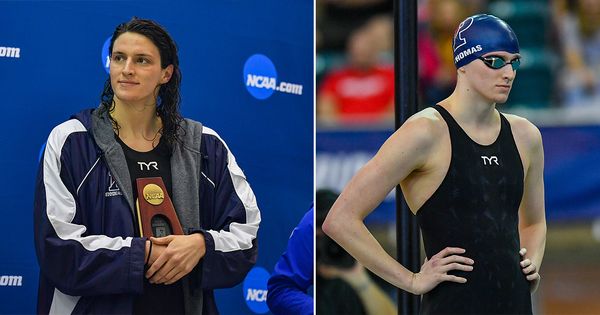An Emotional Announcement

In a surprising and emotional statement, transgender athlete Lia Thomas, who previously competed as a man on the University of Pennsylvania’s swim team, announced her retirement from swimming as a woman. Thomas highlighted the “isolation” and “discrimination” she has faced throughout her journey. However, critics argue that her participation in women’s events is “grossly unfair” and that allowing biological men to compete against women gives them an advantage. Online users have shown little sympathy for Thomas, expressing concerns about the oppression of biological women.
Uphill Battle
As a transgender athlete, Thomas has been at the center of heated debates surrounding equity, gender, and the integrity of competition in women’s sports. Her decision to retire was influenced by the emotional struggles she faced, including the ongoing battle to find acceptance and fairness in a sport she holds dear. Thomas believes that no athlete should experience isolation or discrimination based on their identity, but should instead be celebrated for their accomplishments.
Unfair Advantage?
Critics and fellow athletes argue that Thomas’s inclusion is unfair. They point out that despite transitional surgeries and testosterone suppression, biological men still possess physical advantages over women in sports. These advantages include larger lung capacity, bigger hearts, greater circulation, a larger skeleton, and less fat. Critics claim that allowing transgender women to compete against cisgender women compromises the integrity of the sport.
Controversial Dominance
During her time competing as a man at the University of Pennsylvania, Thomas set record-breaking achievements in collegiate women’s swimming. This dominance fueled further criticism and led to petitions and athletes dropping out of events. Cynthia Millen, a former USA Swimming official, resigned in protest, stating that she could not stand by and watch as girls were “thrown under the bus” by biological male competitors. Millen emphasized that men and women swim differently and stated that men will always be faster than women.
Limits and Restrictions
NCAA rules currently require transgender athletes to undergo one year of testosterone suppression before they can compete as women. However, critics argue that despite hormone therapy, biological advantages still exist. Furthermore, as Thomas continued her journey, she faced roadblocks when applying to compete at the Olympics. The committee overseeing international aquatics established an “open” category for transgender athletes in some events, in order to ensure fairness and inclusivity.
A Retirement with Consequences
Thomas’s retirement from professional swimming sparks debates about the ethical, biological, and societal aspects of transgender athletes in competitive sports. Supporters argue that her departure is a loss for the sport and underscores the need for a more inclusive approach to athletes and identity. However, many in the general population view her retirement with a sense of relief. Critics of Thomas argue that allowing transgender women to compete in women’s categories erodes the progress that women have fought for in sports.
Moving Forward
The controversy surrounding Lia Thomas’s retirement prompts important questions about inclusivity, fairness, and the future of competitive sports. Can the need for inclusivity and fairness be balanced without disrupting traditional sport or excluding cisgender athletes? How many new categories will need to be added to make international sports more inclusive? These questions challenge us to reflect on the opportunities, acceptance, and spaces available to athletes, regardless of their gender identity.



